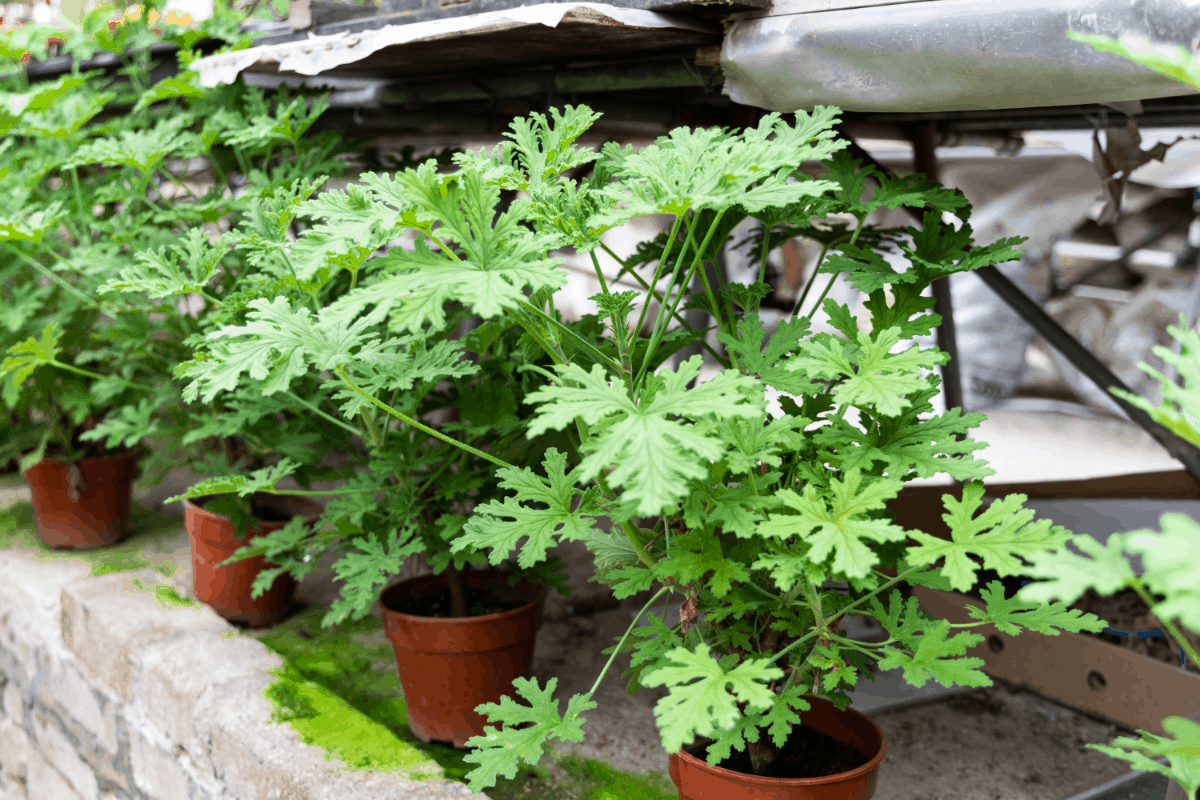Mosquitoes are really annoying. Not only that, but they can also cause certain allergic reactions and even carry a slew of diseases including malaria and dengue to name a few. To get rid of these pesky pests, most households will resort to the use of insect repellants and insecticides. However, they can end up being toxic to your household and surroundings. Fortunately, you can opt for a better and more effective alternative in the form of mosquito repelling plants. Without further ado, here are the 10 most effective mosquito repelling plants that can keep your house and garden mosquito-free.
Plants Effective at Repelling Mosquitoes
Citronella
If you’ve probably heard of this plant before, it’s mainly because it’s one of the most common ingredients that are added to a mosquito repellent. However, what most people didn’t know is that citronella is actually a plant!
Basically, it is a perennial clumping grass that can be easily distinguished due to its strong aroma. Since the plant itself has an even stronger aroma than mosquito repellents that have it as its ingredient, then it certainly makes an excellent choice for a natural mosquito repellent in your garden or household.

However, according to studies, it’s not really the plant itself that wards off insects. Rather, it is the oils that can be extracted from the plant. This doesn’t mean that you should keep this plant in your house, as you can actually crush its leaves to extract the oil which you can then apply to your skin to repel insects.
Marigolds
Marigolds are annual flowers that can be distinguished by their yellow or orange color. They have that kind of scent that not everyone likes and the same goes for mosquitoes. They’re known to contain pyrethrum which is a common ingredient used in most insect repellents.

In spite of that, they have a light and citrusy taste which makes them great for use on salads or soups. The best thing about marigolds is that they’re very easy to grow. You simply have to place them in pots and make sure you place them near your patio to ward off mosquitoes, bugs, and insects.
Pitcher Plant
Though it’s technically not a mosquito repelling plant, a pitcher plant can be effective in dealing with mosquitoes. Compared to the other plants on this list, it doesn’t really repel insects. Instead, it attracts them and eats them as nutrients.

Due to its pitcher-like shape, it can be an excellent addition to your garden or patio. Most homeowners tend to grow theirs in baskets that are hung hear the patio or porch.
Peppermint
The peppermint is a rapid grower which can quickly fill your garden if left unattended. However, it’s not as invasive compared to other plants that belong to the mint family.

It has that strong scent and taste that most bugs despise. Also, its oil is excellent not just for repelling mosquitoes but also for relieving the discomfort which is brought about by mosquito bites. All you have to do is simply rub the leaves onto your skin and wait for the effect to take place.
However, since peppermints are rapid growers, you have to make sure to dig them up or cut them before they become uncontrollable.
Lemon Balm
Discovered to have been used in the Western world as early as the middle ages, lemon balm is used for relieving stress, a natural sleeping aid, and a mild astringent. However, it’s also proven for its insect repellent properties as well. Belonging to the mint family, lemon balm is also a fast grower. Therefore, you’d want to contain it on a point unless you want it to grow uncontrollably in your garden.

Lemon balm is known to contain a compound which is known as citronella that has a similar effect to that of the citronella plant. Aside from that, it also has a lemony scent which is something that mosquitoes despise.
Catnip
If you have feline friends around the house, they’ll be glad to know that their favorite plant, the catnip, also works as an excellent mosquito repellent. According to a study which was conducted in 2010, researchers found that catnip is 10 times more effective in repelling insects compared to DEET.

This is due to its compound nepetalactone which works as a mosquito repellent and cat attractant at the same time. This alongside other chemicals contained in catnip is more effective than DEET.
Due to this, catnip is among the best choice of plants that are effective at repelling mosquitoes. Another good thing about this plant is that it’s relatively easy to grow and care for. However, it can be invasive if planted in your garden bed.
Basil
Basil is one of those dual-purpose plants which can double as an effective mosquito repellent and cooking ingredient in one. The strong scent it gives off is quite offensive to pests not just limited to mosquitoes but flies and other insects as well. Since there are several varieties of basil, you can experiment and look for the ones which you like.

To successfully plant basil in your garden, you have to make sure it’s placed in a spot where it can receive lots of sunlight and good drainage. You can also plant it in containers as long as the requirements are properly met.
Rosemary
Another wonderful plant with a dual purpose, rosemary is a flavorful and easy-to-grow plant that can also act as an effective mosquito repellent. However, make sure you place it in an area with enough space since it can grow quickly if left unattended.

Aside from that, the plant’s pale-blue flowers can complement your garden and increase its overall aesthetic appeal. Moreover, it’s easy to grow as long as you can place it in a location where it can receive lots of sunlight as possible.
Lavender
Lavender has that calming aroma that can be quite offensive to mosquitoes and pests. By simply growing it indoors or in your flower bed, you can repel insects and other bugs without any problem.

Pennyroyal
Pennyroyal is a potent plant that can be quite effective in repelling mosquitoes and other pests including fleas, gnats, and ants. Aside from that, it also makes an excellent groundcover that can attract a wide variety of butterflies.

If you’re struggling with not just mosquitoes but other insects in your house and garden as well, then you might want to consider placing pennyroyal in your surroundings. However, you have to take note that it can be quite toxic to animals and humans if too much of its oil is absorbed into the skin. Therefore, you have to take extra precautions when applying it.
For extra protection against insects and mosquitoes, you’d want to crush some pennyroyal leaves and then place them inside your pocket. Its strong odor will be more than enough to repel them.
How to Repel Mosquitoes with Plants
Without a doubt, some botanical compounds found in a variety of plants can help repel mosquitoes. In most cases, however, they have to be extracted in order to be effective.
Certain plants contain chemicals that can work in three different ways to deal with mosquitoes. They can either:
- Mask human scents
- Repel mosquitoes
- Contain compounds that can be toxic to insects
However, simply placing them in your landscape won’t be enough. Most of the time, you’ll have to extract their oils in order to maximize their full effect. Fortunately, it’s not really that hard to do. You can just crush the leaves in most cases or even burn certain parts for them to be effective.
Other Alternatives to Repelling Mosquitoes
Placing mosquito-repelling plants around your property might not be enough to solve the pesky mosquito problem you currently have. For that, you have to carry out other alternative solutions that will help you get rid of mosquitoes in your yard for good. They’re as follows:
Remove Stagnant Water
Standing water can be an excellent breeding ground for mosquitoes. Therefore, you’d want to make sure that you clear any gutters of debris and check your barrels and discarded cans or pots for any water. Also, make sure you cover your trash cans and change the water in birdbaths regularly.
Sprinkle Coffee Grounds
You can also scatter coffee grounds in any area where you notice standing water present. If there are any mosquito eggs present, they will rise to the surface and die due to lack of oxygen.
Install Insect-Repelling Lights
Another excellent alternative for repelling mosquitoes and other insects is installing insect-repelling lights throughout the yard. LED lights and sodium lamps can be effective in dealing with those annoying pests. Though this will entail a bit of an investment, you’ll be able to benefit from a mosquito-free yard.
Conclusion
We all know how annoying mosquitoes can be. Apart from that, they can also bring about certain diseases such as malaria and dengue if left unattended. Fortunately, you can do away with them for good with the help of the mosquito repelling plants on this list.
What other mosquito-repelling plants do you know? Are you currently using them in your yard? If so, please share with us how effective they are in dealing with your pest problems.
Also, please pass the information to your friends. Thanks for reading!
FAQs
What plants keeps mosquitoes away naturally?
There are a lot of things that keep mosquitoes away naturally. The best way to keep mosquitoes away is by using plants. There are certain plants that mosquitoes avoid because of their bitter taste. Some plants have been used for centuries and there are many more which are just becoming known. These natural plants repel mosquitoes by affecting their behavior and by keeping them away.
These plants include dill, fennel, mint, rue, and parsley. Mosses Many mosses have strong anti-microbial properties, which may keep mosquitoes from breeding in their habitat. You can read more about this here. The bark of trees and shrubs also has anti-microbial properties, and will help keep mosquitoes away. I know that citronella oil works as a repellent for mosquitoes.
If you are looking for plants to keep mosquitoes away, I recommend the following: – Marigolds, they repel bugs and are easy to grow.
Nasturtiums, they are very effective against mosquitoes.
Catnip, they are said to repel fleas.
Chamomile, they repel ants and mosquitoes.
Lavender, it is said to repel bees and insects.
Aloe Vera, it is an aloe plant with many uses including being used as a natural mosquito repellent.
Basil, it has a strong smell that can repel mosquitoes.
Why do some plants repel mosquitoes?
Plants are effective against mosquitoes because of the chemicals they produce. Plants create chemicals called allelochemicals that attract and deter pests. Mosquitoes don’t like the smell or taste of these chemicals and they will avoid plants that produce them. Many plants contain allelochemicals and some even make more than one. They have different effects on different pests and are usually most effective when used together.
Sometimes it does depend on the species of mosquito, which is why it pays to undersand what plants work in what ways.
Is lavender a mosquito repellent?
Lavender oil has been proven to repel mosquitoes and other insects. You can even make your own homemade mosquito repellent by adding lavender essential oil to the water in which you soak your feet.
Do lemongrass plants repel mosquitoes?
Yes, they do. It has been proven scientifically that when lemongrass plants are planted near your house or property, you can reduce the number of mosquitoes in your area by up to 50 percent. In addition, you can also protect yourself from the bites of mosquitoes if you are outside in an area where there are lemongrass plants nearby.





